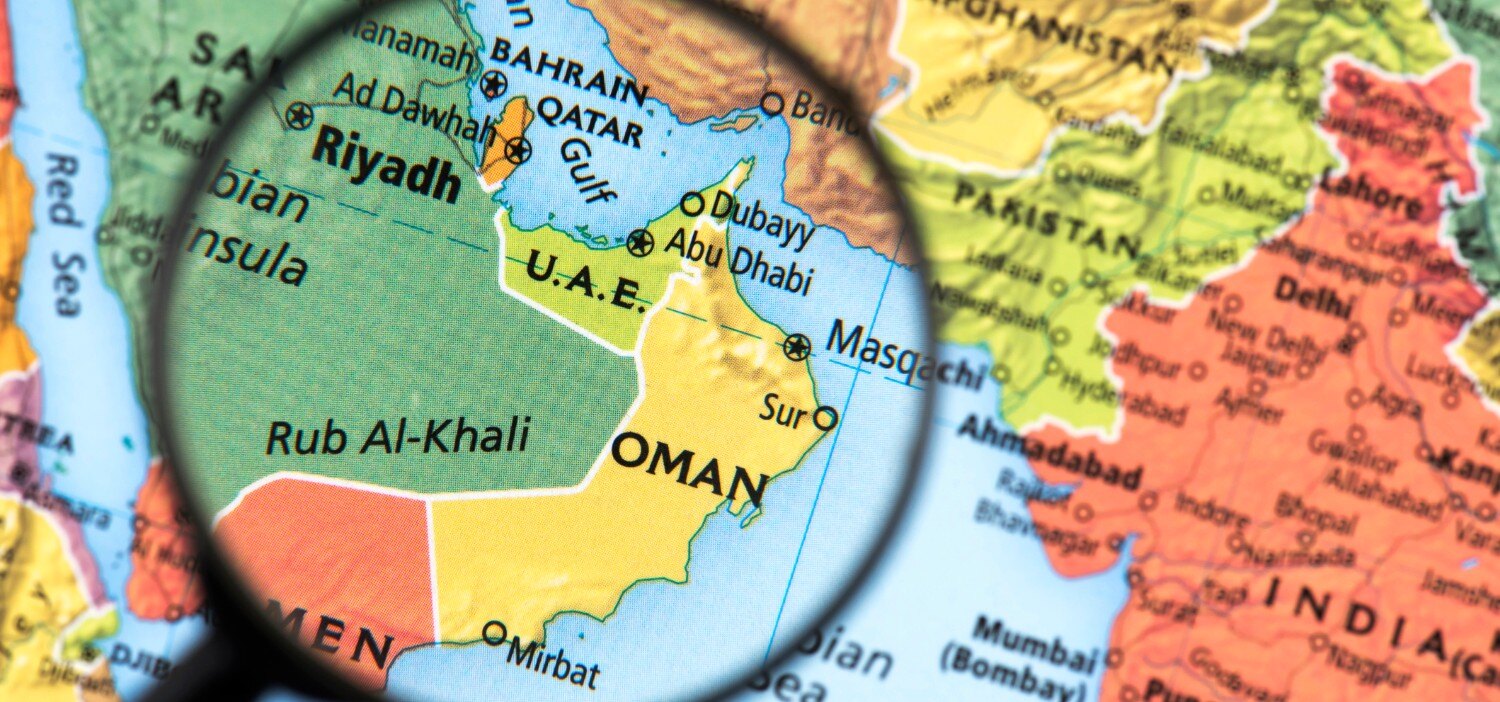Travel Money in Oman
What is the local currency in Oman?
The local currency is Omani Rial. One Omani Rial is worth approximately 45pence.
History of the Omani Rial
- Until 1940, the Indian rupee and the Maria Theresa thaler (known locally as the rial) were the main currencies circulating in Muscat and Oman, as the state was then known, with Indian rupees circulating on the coast and thaler in the interior.
- In 1940, coins were introduced for use in Dhofar, followed, in 1946, by coins for use in Oman. Both coinages were denominated in baisa (equivalent to the paisa), with 200 baisa = 1 rial.
- From 1959, the Indian rupee and Gulf rupee continued to circulate.
- On 6 June 1966, India devalued the Gulf rupee against the Indian rupee. Following the devaluation, several of the states still using the Gulf rupee adopted their own currencies. Oman continued to use the Gulf rupee until 1970, when it adopted the rial Saidi. It was equal to the British pound sterling and 1 rial Saidi = 21 Gulf rupees. The rial Saidi was subdivided into 1000 baisa. The Omani rial replaced the rial Saidi at par in 1973.
Tipping in the UAE
Tipping is accepted in the UAE but not as a general rule. It tends to relate to good service in hotel and restaurant but is discouraged in bars and on guided tours. Its normal to tip between 15-20% in a restaurant and to leave a tip of equivalent to between £1 and £10 in local currency as a tip in hotels.
View our tipping guide for help on tipping abroad: Caxton tipping guide
Using cash in Oman
When travelling, our experts would recommend always bringing a small amount of cash with you on every trip, for initial taxi transfers or hotel deposits etc. The rest of your travel money should be put onto a prepaid multi-currency card, for safe and secure spending.
There are several ATM’s on the arrival’s concourse at Muscat airport – provided by both banks and currency exchange companies. Most international banks and money outlets now charge a fee for using ATM machines, as do most card providers.
Taking a travel pre-paid card and a credit card is recommended as Caxton do not charge for international ATM use regardless of sum or number of times, (but check with your card provider about charges.) Use a pre-paid card as you would cash and keep credit cards for reservations. Pay using a pre-paid card when you can as it will save you money and as it is not linked to your bank card, it is ultimately more secure.
Take your bank card details but be wary of using a bank card. Tell your bank you are travelling before you go so as not to have your transaction identified as fraudulent but be prepared for fees and high exchange rates.
All major cards are accepted widely in Oman at key tourist hubs.

What happens if I have my wallet stolen whilst in Oman?
Oman is known to be a relatively safe country with friendly and helpful people, but this shouldn’t stop you from being head smart. If the majority of your cash is on a prepaid card, this will be automatically protected. However, in case the worse happens, here are the list of major debit/credit card ‘lost and stolen’ numbers:
HSBC/First Direct - +44 1442 422929
Natwest - +44 1268 500 813
Lloyds - +44 1702 278270
Barclays - +44 162 468 4444
Santander +44 1908 237 963
What can I do with spare Rials?
- Why not bring home some traditional silverware, frankincense, and a woven Omani wool scarf.
- Oman is famous for all things fragrant – frankincense, bukhoor, myrrh and traditional perfumes – a cheap and portable memory of the sultanate.
- Oman is also famous for it's delicate pottery - why not treat yourself to some unique homeware?
- Travel Money in Europe: Travel Money in France, Travel Money in Spain, Travel Money in Sweden, Travel Money in Denmark, Travel Money in Austria, Travel Money in Finland, Travel Money in Germany, Travel Money in Greece, Travel Money in Italy, Travel Money in Norway, Travel Money in Portugal, Travel Money in Switzerland, Travel Money in Turkey.
- Travel Money in North America: Travel Money in the USA, Travel Money in Canada.
- Travel Money in South America: Travel Money in Argentina.
- Travel Money in Asia: Travel Money in Thailand, Travel Money in Japan, Travel Money in Oman.
- Travel Money in Australia and Oceania: Travel Money in Australia.
- Travel Money in Africa: Travel Money in Cape Verde.
Get your Holiday Money Delivered
Beat the queues with the Caxton Cash Delivery service. With next day cash delivery to your home and 58 different currencies, it couldn’t be easier to get your holiday money sorted. Simply Login to your Caxton account and select ‘Cash Delivery’ to get started.
Travel the world with the Caxton prepaid travel card. Experts in Travel Money.
Check out our Travel Money Guides for around the world:



